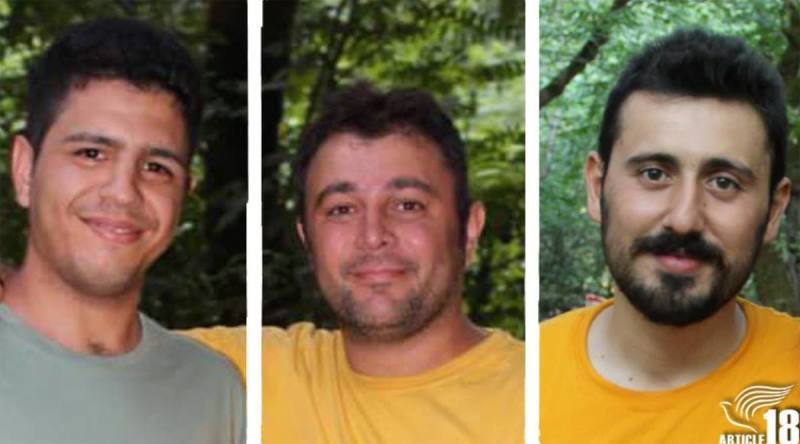
Three Iranian Christians were recently arrested in the city of Rasht while attending a house church service.
Ahmad Sarparast, Morteza Mashoodkari and Ayoob Poor-Rezazadeh were arrested at around 10 pm on September 5 while gathered for a church prayer service, the International Christian Concern (ICC) reported.
Authorities reportedly stormed the house and took the three Christian converts away to an undisclosed location for questioning. The ICC requests that their names, as well as those of their families, be remembered in prayers.
Rasht, where the Christian converts were arrested, is considered to be a hotbed of persecution for the Christian community.
Furthermore, 11 local Christians, notably Pastor Yousef Nadarkhani, are facing lengthy jail terms. Mohammadreza Omidi (Youhan), another Rasht resident, is now in domestic exile, while four others await sentence.
Currently, nine of the eleven Christians are serving five-year terms for their involvement and supervision in house churches, and they are being held accountable for "acting against national security." Raids on house churches in January and February 2019 led in the arrests of the vast majority of converts who are now serving prison sentences in Rasht.
The nine inmates presently housed at Evin Prison have also faced threats of forcible transfers to other facilities in recent weeks. Although they may be closer to home, the Christians must pay for their own travel. Some worry that the move might also undermine their "retrial, appeal or leave" applications.
Another concern is that, notwithstanding the atrocities in Evin, a smaller prison is seen to be less likely to differentiate political detainees, such as Christian converts, from real offenders.
Last week, the sentences of three other Iranian Christian coverts were lowered from five years to three years. Amin Khaki, Milad Goudarzi, and Alireza Nourmohammadi were all sentenced to prison after they were accused of "propaganda that educates in a deviant way contrary to the holy religion of Islam" under the revised Article 500 of the Iranian Penal Code, which was brought against them.
The convictions of the three converts were maintained but were lowered from the maximum five-year term at an appeal hearing on August 25. Originally, on June 26, the court ordered them to serve the maximum jail term possible, as well as a fine of roughly US$1,600.
In the midst of severe government persecution of Iranian converts to Christianity, the ICC highlighted the legislation prohibiting conversion, evangelism and dissemination of Christian material in Persian. In addition to the present fundamentalist administration in power, the change to the criminal code in February 2021 indicates that religious freedom in Iran will likely to be extremely limited.
Just last month, Iran's Supreme Leader Ali Khamenei supported the country's new president, Ebrahim Raisi. This came after low voter participation resulted in Raisi being declared the winner after all his main opponents were banned from running against him in the election.
Raisi joins a regime that is already aggressively targeting Christians due to his own experience of injustice when he attended in court proceedings that sentenced thousands of Iranians to jail for minor offenses.
Despite this dark background, the Iranian church, on the other hand, is still regarded as the world's fastest growing church.





















